family
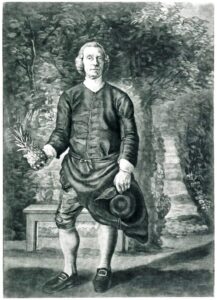 In what is one of the funniest displays of “wealth” the pineapple was once carried around as proof that the one carrying it was a first-class citizen. Now, I can’t say that I think the tradition made any sense, but in 18th century England, pineapples really were a status symbol. Their very cost set the apart as something only owned by the very rich. Like many of the upper-class citizens of that era, they liked to flaunt their wealth to those less fortunate. So, those rich enough to own a pineapple would carry them around to signify their personal wealth and high-class status. They also adorned everything from clothing to houseware with the tropical fruit.
In what is one of the funniest displays of “wealth” the pineapple was once carried around as proof that the one carrying it was a first-class citizen. Now, I can’t say that I think the tradition made any sense, but in 18th century England, pineapples really were a status symbol. Their very cost set the apart as something only owned by the very rich. Like many of the upper-class citizens of that era, they liked to flaunt their wealth to those less fortunate. So, those rich enough to own a pineapple would carry them around to signify their personal wealth and high-class status. They also adorned everything from clothing to houseware with the tropical fruit.
Pineapples were first imported from South America to Europe by Spanish explorers starting in the 16th century. Though native to South America, pineapples made their  way to the Caribbean Island of Guadeloupe. It was in Guadeloupe that Christopher Columbus first spotted their spiky crowns in 1493. He and his crew took the pineapples back to Spain, where everyone loved how sweet this new, exotic fruit tasted. Unfortunately, because they were a tropical fruit, the pineapples wouldn’t grow in Spain. The only pineapples they could get their hands on had to be imported from across the Atlantic. It was time consuming and expensive undertaking, and often resulted in rotten fruit. From Spain, they then came to England. It was in England that the pineapple became the most prestigious fruit of the 18th century. European sailors brought it home as a sign of successful expedition and evidence of their prosperity. It also became a decorative piece on upper-class dining tables. When a pineapple was seen decorating the dining table of a home, you knew that the family had traveled places and
way to the Caribbean Island of Guadeloupe. It was in Guadeloupe that Christopher Columbus first spotted their spiky crowns in 1493. He and his crew took the pineapples back to Spain, where everyone loved how sweet this new, exotic fruit tasted. Unfortunately, because they were a tropical fruit, the pineapples wouldn’t grow in Spain. The only pineapples they could get their hands on had to be imported from across the Atlantic. It was time consuming and expensive undertaking, and often resulted in rotten fruit. From Spain, they then came to England. It was in England that the pineapple became the most prestigious fruit of the 18th century. European sailors brought it home as a sign of successful expedition and evidence of their prosperity. It also became a decorative piece on upper-class dining tables. When a pineapple was seen decorating the dining table of a home, you knew that the family had traveled places and  were either explorers or merchants with money, to afford the exotic fruit.
were either explorers or merchants with money, to afford the exotic fruit.
Because of its new-found fame, the pineapple grew to be very expensive. In the American colonies in the 1700s, pineapples were no less special. They were imported from the Caribbean Islands, and the pineapples that arrived in America were very expensive. In fact, one pineapple could cost as much as $8000…in today’s dollars. While they may have been a symbol of wealth, if you ask me, carrying one around would not be a wise way to show that wealth. It wouldn’t take long for that coveted fruit to go bad, and they all you had was the memory of the money spent and thrown away.
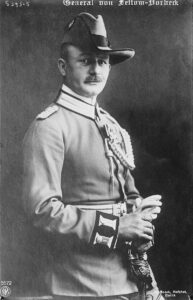
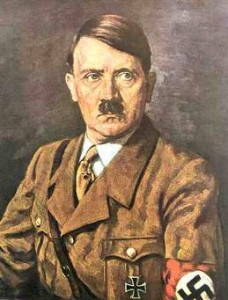 Japan entered World War I as a member of the Allies on August 23, 1914. Assisting the Allies with the war effort was not their reason for doing so, however. Once in, Japan seized the opportunity of Imperial Germany’s distraction with the European War to expand its sphere of influence in China and the Pacific. Because Japan already had a military alliance with Britain, there was minimal fighting as they pushed through to make their territorial gains. Japan was not pressured to enter the war. The Allies had things well in hand, so their motive was obvious. As they swept through, they quickly acquired Germany’s scattered small holdings in the Pacific and on the coast of China. While those holdings were relatively easy to overtake, not all of Germany’s holdings were so easy.
Japan entered World War I as a member of the Allies on August 23, 1914. Assisting the Allies with the war effort was not their reason for doing so, however. Once in, Japan seized the opportunity of Imperial Germany’s distraction with the European War to expand its sphere of influence in China and the Pacific. Because Japan already had a military alliance with Britain, there was minimal fighting as they pushed through to make their territorial gains. Japan was not pressured to enter the war. The Allies had things well in hand, so their motive was obvious. As they swept through, they quickly acquired Germany’s scattered small holdings in the Pacific and on the coast of China. While those holdings were relatively easy to overtake, not all of Germany’s holdings were so easy.
In fact, the other Allies quickly started to realize that Japan’s motives weren’t exactly in everyone’s best interests, and they began to push back hard against Japan’s efforts to dominate China through the Twenty-One Demands of 1915. Japan’s occupation of Siberia against the Bolsheviks failed, as its wartime diplomacy and limited military action produced few results. Then, by the time of the Paris Peace Conference in 1919, Japan was largely frustrated in its ambitions. Nevertheless, Japan had snapped up Germany’s Asian colonies with ease, and even the African colony of Togoland (now Togo and parts of Ghana) fell in less than three weeks. The first real sign of resistance was when German Kamerun (Cameroon) was invaded and lightly contested until 1916. Still, it fell in the end. It seemed that Japan was undefeatable.
Nevertheless, with all the victories, the German colonies in East Africa led by the formidable and undefeated Paul von Lettow-Vorbeck proved to be the exception to the rule. The situation facing von Lettow-Vorbeck and his colonial forces was formidable. Still, von Lettow-Vorbeck knew how to fight, and he refused to back down. When the Japanese came up against von Lettow-Vorbeck, they found themselves heavily outnumbered, and they found themselves with no prospect of reinforcements or much in the way of material support arriving anytime soon.
The fact was that von Lettow-Vorbeck was seeking to tie up British military resources in Africa to relieve some pressure on the European theater. He drew upon his many years of service in Africa to wage a highly effective guerilla war against a much larger enemy. Von Lettow-Vorbeck was probably one of the greatest guerilla warfare strategists of all time…maybe the greatest. Von Lettow-Vorbeck even gained the loyalty of his African soldiers. In those days, it was highly unusual for a commanding officer or any white soldier for that matter, to show any level of respect to the African soldiers. Von Lettow-Vorbeck did, by appointing Black officers and speaking Swahili. The German troops had learned to live off the land and make the most of very little supplies, due to hard lessons drawn from years of colonial warfare in Africa. Those years were filled with atrocities, but they had persevered.
This one small German colonial army tied up the British forces for the duration of the conflict. The British had been plundering food 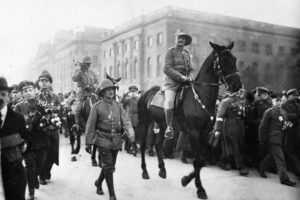 supplies that devastated the local population. Finally, the German army surrendered on November 25, 1918, in Zambia, two weeks after the November 11, 1918 armistice ended hostilities. Of course, Hitler knew a great officer when he saw one, and so after the war, Hitler immediately offered von Lettow-Vorbek a prestigious position in the Third Reich. In what most would consider a complete shock, von Lettow-Vorbeck bluntly refused the offer, using some very “colorful” language, which shall not be repeated here. It was a courageous, but not very wise move, given the circumstances. Nevertheless, his boldness, as well as his loyalty to the German people, paid off. Von Lettow-Vorbeck was simply too popular with the German people to be eliminated by the regime. He lived to be 94.
supplies that devastated the local population. Finally, the German army surrendered on November 25, 1918, in Zambia, two weeks after the November 11, 1918 armistice ended hostilities. Of course, Hitler knew a great officer when he saw one, and so after the war, Hitler immediately offered von Lettow-Vorbek a prestigious position in the Third Reich. In what most would consider a complete shock, von Lettow-Vorbeck bluntly refused the offer, using some very “colorful” language, which shall not be repeated here. It was a courageous, but not very wise move, given the circumstances. Nevertheless, his boldness, as well as his loyalty to the German people, paid off. Von Lettow-Vorbeck was simply too popular with the German people to be eliminated by the regime. He lived to be 94.
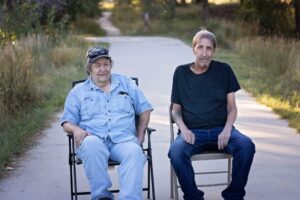 My cousin, Delwin Johnson was always a quiet man…at least he was every time I was around him. Nevertheless, he was a sweet man, and it makes me sad that he has left us. I’m sure that he wasn’t quite so quiet around his family. In fact, he loved teasing his nephew, Ethan Stanko when he kept asking his mom, JeanAnn Stanko to explain the game of football to him on Thanksgiving, but then Ethan was just too busy to listen to his mom teach him about the game. It’s a typical kid thing, but funny, nevertheless. As for Del’s brother, Elmer…well, they were very close, and there will always be a hole in Elmer’s life where his little brother once was. That makes me so sad, because I know Elmer missed Del so much.
My cousin, Delwin Johnson was always a quiet man…at least he was every time I was around him. Nevertheless, he was a sweet man, and it makes me sad that he has left us. I’m sure that he wasn’t quite so quiet around his family. In fact, he loved teasing his nephew, Ethan Stanko when he kept asking his mom, JeanAnn Stanko to explain the game of football to him on Thanksgiving, but then Ethan was just too busy to listen to his mom teach him about the game. It’s a typical kid thing, but funny, nevertheless. As for Del’s brother, Elmer…well, they were very close, and there will always be a hole in Elmer’s life where his little brother once was. That makes me so sad, because I know Elmer missed Del so much. 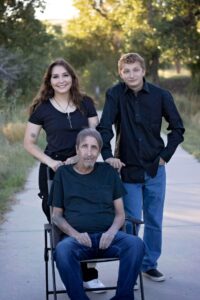
Delwin, wasn’t a clumsy sort, but he did have a “little mishap” one time while he was out hunting with his sister, Darla Stanko. His niece, JeanAnn Stanko tells me, “He was with mom (his sister, Darla Stanko). They stopped because they saw a deer and he accidentally shot through the floorboards, hitting the transmission cooling lines. As you know transmission fluid is red, so it looked like the car was bleeding.” I can see the shock on their faces now, and then, I can almost hear Delwin saying, “Oops, I shot the car!!” Then, the shock would most likely turn to hysterical laughter…until it came time to figure out how to get home…and how to get the car fixed.
Ashley McCollum calls Delwin, Uncle Del, not because he is her biological uncle, but because her dad and Del were friends before Ashley was born. Ashley grew up around Del, and she said that Del had a profound impact on her life. When Ashley was in 7th grade, she was living with Del in a little house on Durbin Street in Casper, and their favorite thing to do was to take turns playing Zelda on Del’s Super Nintendo. They  loved to take their fishing trips. He also helped Ashley and her dad when they needed a new roof on their house. And there was the time Del fed Angel (who I assume was a dog) the last of his pizza. Ashley says you would just have to be to understand, and that she will forever miss her Uncle Del.
loved to take their fishing trips. He also helped Ashley and her dad when they needed a new roof on their house. And there was the time Del fed Angel (who I assume was a dog) the last of his pizza. Ashley says you would just have to be to understand, and that she will forever miss her Uncle Del.
Rachel Johnson, Del’s daughter-in-law recalls the trips she and his son, Jason took to see Del, over the 4th of July. Del’s grandson, JJ had such a wonderful time. He and Grandpa Delwin loved playing with the Nerf guns. Every time JJ managed to hit Del in the chest, Del acted the part of a man who had been shot. JJ loved it!! He laughed and laughed. JJ loved his grandpa so much, and after they had visited, he asked to go see Grandpa Delwin for weeks and weeks. Del loved being a grandpa, and the grandkids and step grandkids were his pride and joy. They are the blessing you get from being a parent. Delwin passed away in exactly the way he wanted to…peacefully in his sleep. We will all miss him very much. Rest in peace Del…until we all meet again.

 Thanksgiving…a day of reflection on the events of the year that has passed and the blessings we have been given. Many people think of Thanksgiving as just a day to eat a big meal, and watch the parade or a football game, but that isn’t its real purpose at all. None of us goes through life without trials and troubles, but by the grace of God, we have come through another year, and that is something to be thankful for, even if your year had very few trials.
Thanksgiving…a day of reflection on the events of the year that has passed and the blessings we have been given. Many people think of Thanksgiving as just a day to eat a big meal, and watch the parade or a football game, but that isn’t its real purpose at all. None of us goes through life without trials and troubles, but by the grace of God, we have come through another year, and that is something to be thankful for, even if your year had very few trials.
We have been very blessed this past year. Our daughter, Corrie Petersen graduated from nursing school, and we got to go to Las Vegas for her graduation ceremony and spend a week there celebrating. We had a wedding for Athena and Josh, and anniversary for Karen and Chris, and two new great grandsons, Axel and Cyler arrive…to join the great granddaughter, Cambree (who started Kindergarten this year) and two great grandsons, Caysen and Justin, that we already had. My daughter, Amy and her daughter, Shai came out from Washington for the wedding. I also got to go out and spend two wonderful weeks with Amy and her family, Travis, Shai, and Caalab in Washington state. Amy and Shai changed jobs, moving from Rice Insurance to Brown and Brown Insurance. Amy and Travis also got to finally take their anniversary cruise to Alaska. They had a great time, and even got to see the Aurora Borealis. 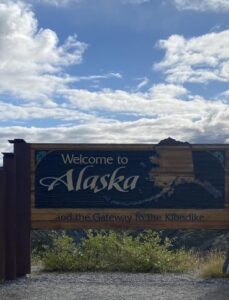
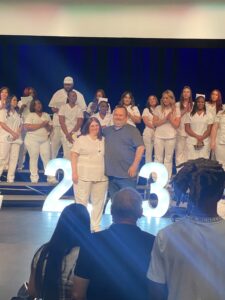 It was a good move for them. Bob and I spent a relaxing week in the Black Hills, as well as our anniversary trip to Thermopolis, which are two of our favorite places.
It was a good move for them. Bob and I spent a relaxing week in the Black Hills, as well as our anniversary trip to Thermopolis, which are two of our favorite places.
As with any year, there were a few tougher times, but they were few and far between. All in all, our year was awesome, and we can honestly say that God has greatly blessed our family. As we celebrate the blessings of God, I want to give thanks to Him who is the Father of all blessings. We would not be where we are without our gracious God. We have been healed of all our infirmities and strengthened for all we have undertaken. Our God is truly an awesome God!! I pray that everyone had a year filled with God’s greatest blessings. Happy Thanksgiving to all of my family and friends! God bless your next year! I love you all!
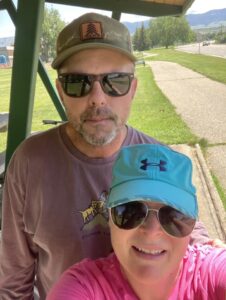
 My niece, Kelli Schulenberg is one of the all-time greatest country music fans in the world…well, maybe that is a bit of an exaggeration, but she certainly is a big fan. Kelli loves going to concerts and I recently found out that she blogs about the concerts she attends and any other little tidbits she finds out about the various bands. Kelli’s blog is called “Thoughts From A Gypsy Soul.” I’m looking forward to reading about her adventures.
My niece, Kelli Schulenberg is one of the all-time greatest country music fans in the world…well, maybe that is a bit of an exaggeration, but she certainly is a big fan. Kelli loves going to concerts and I recently found out that she blogs about the concerts she attends and any other little tidbits she finds out about the various bands. Kelli’s blog is called “Thoughts From A Gypsy Soul.” I’m looking forward to reading about her adventures.
Kelli is wife to my nephew, Barry Schulenberg and “fur mommy” to their dog, Scout. They love to go hiking and bicycling as much as possible. Those things aren’t always easy in Wyoming, so in the winter, they like to go snowshoeing and  cross-country skiing. They really love camping in the summertime, and in fact, the mountains could easily be their favorite place in the world…other than at a concert, of course. One of their favorite places to go is the Big Horn Mountains, which is a favorite for most Wyoming campers. Kelli and Barry live in the country, east of Casper, Wyoming, and their place has an incredible view of our own Casper Mountain. Their favorite thing to do, when they can’t be up on Casper Mountain hiking and camping, is to be out in their yard relaxing and looking at Casper Mountain.
cross-country skiing. They really love camping in the summertime, and in fact, the mountains could easily be their favorite place in the world…other than at a concert, of course. One of their favorite places to go is the Big Horn Mountains, which is a favorite for most Wyoming campers. Kelli and Barry live in the country, east of Casper, Wyoming, and their place has an incredible view of our own Casper Mountain. Their favorite thing to do, when they can’t be up on Casper Mountain hiking and camping, is to be out in their yard relaxing and looking at Casper Mountain.
Kelli moved to Wyoming from Reading, Michigan, and while she loves summertime in Wyoming, found the winters to be a bit of a culture shock. Nevertheless, she also found her husband Barry, and that he has turned her into a Wyoming girl, even if she is technically a transplant. She still loves going home for visits, often with her mom, Mary Wages, who divides her time between Casper, and Colorado…with occasional 
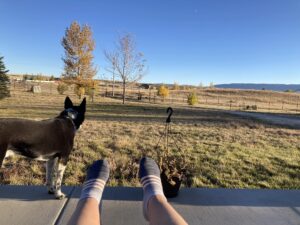 mother/daughter trips back home. Kelli will always consider Michigan to be her home. I think everyone does consider the place of their birth to be home forever, a fact I can attest to. It doesn’t matter how long or how short your time was there…you will always have a place in your heart for the place of your birth. Coming from Wisconsin, I can totally attest to that. For Kelli, Michigan will always be that place in her heart. Today is Kelli birthday. Happy birthday Kelli!! Have a great day!! We love you!!
mother/daughter trips back home. Kelli will always consider Michigan to be her home. I think everyone does consider the place of their birth to be home forever, a fact I can attest to. It doesn’t matter how long or how short your time was there…you will always have a place in your heart for the place of your birth. Coming from Wisconsin, I can totally attest to that. For Kelli, Michigan will always be that place in her heart. Today is Kelli birthday. Happy birthday Kelli!! Have a great day!! We love you!!
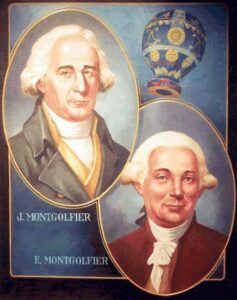 These days, we often see hot-air balloons flying over our cities in the summer. In fact, there are annual balloon festivals in many cities, and people turn out in droves to watch the colorful spectacle go up or fly over their houses. People will pay good money for a chance to take a ride in them…a chance to enjoy the freedom of floating on air for a little while and leaving all their cares far below on the ground.
These days, we often see hot-air balloons flying over our cities in the summer. In fact, there are annual balloon festivals in many cities, and people turn out in droves to watch the colorful spectacle go up or fly over their houses. People will pay good money for a chance to take a ride in them…a chance to enjoy the freedom of floating on air for a little while and leaving all their cares far below on the ground.
French physician Jean-François Pilatre de Rozier and François Laurent, the marquis d’ Arlandes, knew well, that desire. They made their dream of “floating on air” come true when, on November 21, 1783, they lifted of and almost silently floated over the city of Paris, France. Theirs was the first untethered hot-air balloon flight in history. They flew 5.5 miles over Paris in about 25 minutes. Their cloth balloon was crafted by French paper-making brothers Jacques-Étienne and Joseph-Michel Montgolfier, inventors of the world’s first successful hot-air balloons.
“Many inventors had tried to make a way to fly, building elaborate kins of wings and such, but nothing succeeded until the 1780s, that human flight became a reality. The first successful flying device may not have been a Montgolfier balloon but an “ornithopter,” a glider-like aircraft with flapping wings. According to a hazy record, the German architect Karl Friedrich Meerwein succeeded in lifting off the ground in an ornithopter in 1781. Whatever the veracity of this record, Meerwein’s flying machine never became a viable means of flight, and it was the Montgolfier brothers who first took men into the sky.” 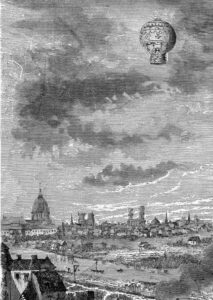
The Montgolfier brothers ran a prosperous paper business in the town of Vidalon in southern France. Because they were so successful, they had the money to finance their interest in scientific experimentation. They dabbled in several areas of experimentation, and in 1782, they discovered that combustible materials burned under a lightweight paper or fabric bag would cause the bag to rise into the air. The brothers thought it was the smoke that causes balloons to rise, when actually, it is hot air that causes balloons to rise. Nevertheless, the error in the mechanics of flight didn’t hamper their further achievements.
They gave their first public demonstration on June 4, 1783, in Annonay, sending an unmanned balloon heated by burning straw and wool, 3,000 feet into the air before it settled to the ground nearly two miles away. The brothers didn’t know that the first successful hot air balloon test had preceded theirs in 1709 and was carried out by Bartolomeu Lourenço de Gusmão, a Brazilian priest who launched a small hot-air balloon in the palace of the king of Portugal. Nevertheless, the brothers quickly outdid anything de Gusmão did.
The Montgolfiers sent a sheep, a rooster, and a duck aloft on September 19, in one of their balloons in a trial run, prior to the first manned flight. The balloon, painted azure blue and decorated with golden fleurs-de-lis, lifted up from the courtyard of the palace of Versailles in the presence of King Louis XVI. The experiment was successful, and the animals stayed afloat for eight minutes. Then, they landed safely two miles away. Finally, it  was time to try humans, so on October 15, Jean-François Pilátre de Rozier made a tethered test flight of a Montgolfier balloon. The balloon rose briefly before returning to earth. Then, finally, in a much-anticipated flight, the first untethered hot-air balloon flight occurred before a large, expectant crowd in Paris on November 21, 1783. Pilátre and d’Arlandes, an aristocrat, rose up from the grounds of royal Cháteau La Muette in the Bois de Boulogne and flew approximately five miles. Humanity had at last conquered the sky. For their achievement, the Montgolfier brothers were honored by the French Acadámie des Sciences. They went on to published books on aeronautics, and they also pursued important work in other scientific fields.
was time to try humans, so on October 15, Jean-François Pilátre de Rozier made a tethered test flight of a Montgolfier balloon. The balloon rose briefly before returning to earth. Then, finally, in a much-anticipated flight, the first untethered hot-air balloon flight occurred before a large, expectant crowd in Paris on November 21, 1783. Pilátre and d’Arlandes, an aristocrat, rose up from the grounds of royal Cháteau La Muette in the Bois de Boulogne and flew approximately five miles. Humanity had at last conquered the sky. For their achievement, the Montgolfier brothers were honored by the French Acadámie des Sciences. They went on to published books on aeronautics, and they also pursued important work in other scientific fields.
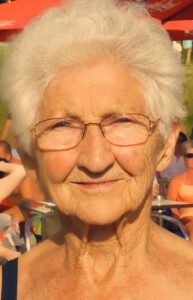 For most of us, who took gymnastics in school or other training, our school years coming to an end, usually also ends our “gymnastics career,” if it could be called that. There are some gymnasts who continue on in their career or even go on to the Olympics, but even then, most of them are finished with their gymnastics career by their late teens or early twenties. Let’s face it, gymnastics is a strenuous career, and most people just can’t take the strain very late in life or even past their very early lives. There are a few, however, who are active into their mid to late thirties, and one, Oksana Chusovitina, who is currently still active at 48 years old. Nevertheless, Chusovitina is nowhere near the oldest active gymnast.
For most of us, who took gymnastics in school or other training, our school years coming to an end, usually also ends our “gymnastics career,” if it could be called that. There are some gymnasts who continue on in their career or even go on to the Olympics, but even then, most of them are finished with their gymnastics career by their late teens or early twenties. Let’s face it, gymnastics is a strenuous career, and most people just can’t take the strain very late in life or even past their very early lives. There are a few, however, who are active into their mid to late thirties, and one, Oksana Chusovitina, who is currently still active at 48 years old. Nevertheless, Chusovitina is nowhere near the oldest active gymnast.
Johanna Quaas, who is finally “rumored” to have retired, was born November 25, 1925. She is a German gymnast who was certified by Guinness World Records April 12, 2012, as the world’s oldest active competitive gymnast. At that time, she was 86 when she broke the record. She was a regular competitor in the amateur competition Landes-Seniorenspiele (State Senior Games) in Saxony. She became known worldwide on March 26, 2012, when YouTube user LieveDaffy uploaded two videos of Quaas performing gymnastics routines…one on the parallel bars and one on the floor. Prior to that video, the tiny, 5’2″ gymnast was relatively unknown, but as the clips went viral, within six days of posting and had generated over 1.1 million views each, that all changed. In addition to being recognized by Guinness World Records, Quaas has received the Nadia Com?neci Sportsmanship Award from the International Gymnastics Hall of Fame. Being an active gymnast at 86 is unheard of, and yet, Quaas continued to compete until she suffered a torn biceps tendon in 2018, while trying to help her granddaughter. Of the incident, “She just wanted to adjust a baby chair  for her granddaughter, but the ‘nipple just wouldn’t go through the flap’ – a jerk and jerk – a severe pain in her left arm led to the above diagnosis! That hurt, of course,” said the still active senior athlete, “but strangely enough, I can now raise my arm a lot better than before, and the doctor said, let’s leave it that way for now!” Technically, she stopped performing active or competitive gymnastics. Nevertheless, in addition to fact that she can actually raise her arm better than before, she could still stand on her head at age 95. Still unable to slow down really, she has developed a bed gymnastics routine which she performs every morning and has made the routine available on YouTube and DVD published by Wissner-Bosserhoff. So, has she completely retired? Only time will tell.
for her granddaughter, but the ‘nipple just wouldn’t go through the flap’ – a jerk and jerk – a severe pain in her left arm led to the above diagnosis! That hurt, of course,” said the still active senior athlete, “but strangely enough, I can now raise my arm a lot better than before, and the doctor said, let’s leave it that way for now!” Technically, she stopped performing active or competitive gymnastics. Nevertheless, in addition to fact that she can actually raise her arm better than before, she could still stand on her head at age 95. Still unable to slow down really, she has developed a bed gymnastics routine which she performs every morning and has made the routine available on YouTube and DVD published by Wissner-Bosserhoff. So, has she completely retired? Only time will tell.
Johanna Geißler was born November 20, 1925, in Hohenmölsen, Germany. She was always an active child. She often climbed tall bars and roll on the mats. She began gymnastics at an early age and loved it immediately. She first competed at about age ten, but soon her family moved to a different part of Germany, temporarily ending her participation in competitions. When she was eleven, she began Nazi Germany’s required social 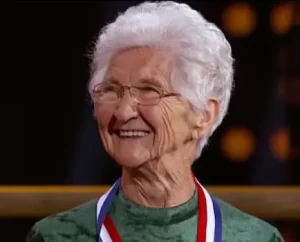 service work for girls during World War II during which she worked in farming and took care of the children of another family. After completing the compulsory social service, she trained as a gymnastics coach in Stuttgart, finishing in 1945 and moving to Weißenfels. She was still unable to work in gymnastics at that time, because it had been banned in East Germany during the first two years of post-World War II Allied occupation. So, she took up team handball instead, while in Weißenfels, learning and practicing it until the ban on gymnastics was removed in 1947. In 1950, she studied at the University of Halle to become a sports teacher. She has been an active athlete all her life, and it’s been a very long and healthy life. Today, Johanna Quaas is 98 years old. Happy birthday to this amazing lady.
service work for girls during World War II during which she worked in farming and took care of the children of another family. After completing the compulsory social service, she trained as a gymnastics coach in Stuttgart, finishing in 1945 and moving to Weißenfels. She was still unable to work in gymnastics at that time, because it had been banned in East Germany during the first two years of post-World War II Allied occupation. So, she took up team handball instead, while in Weißenfels, learning and practicing it until the ban on gymnastics was removed in 1947. In 1950, she studied at the University of Halle to become a sports teacher. She has been an active athlete all her life, and it’s been a very long and healthy life. Today, Johanna Quaas is 98 years old. Happy birthday to this amazing lady.
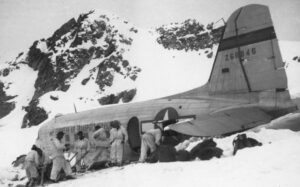
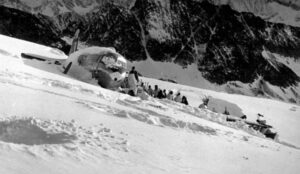 When Switzerland found itself in the middle of an unusual heatwave, the Gauli Glacier melted enough to uncover the wreckage debris of an American World War II plane that crash-landed in the Bernese Alps 72 years ago. Now, when you hear about the crash of a plane, especially into a mountain or in this case, a glacier, you expect to find fatalities. Of course, this plane crashed a long time ago, and the authorities already knew the outcome of that crash. The people who found the plane in the ice, however, might not have. This plane, a C-53 Skytrooper Dakota had been traveling from Austria to Italy when it collided with the Gauli Glacier at an altitude of 10,990 feet on that fateful day.
When Switzerland found itself in the middle of an unusual heatwave, the Gauli Glacier melted enough to uncover the wreckage debris of an American World War II plane that crash-landed in the Bernese Alps 72 years ago. Now, when you hear about the crash of a plane, especially into a mountain or in this case, a glacier, you expect to find fatalities. Of course, this plane crashed a long time ago, and the authorities already knew the outcome of that crash. The people who found the plane in the ice, however, might not have. This plane, a C-53 Skytrooper Dakota had been traveling from Austria to Italy when it collided with the Gauli Glacier at an altitude of 10,990 feet on that fateful day.
It was November 19, 1946, and the plane carrying four crew members and eight passengers were enjoying their trip, when something went terribly wrong. When they hit the glacier, several people were injured, amazingly, there were no fatalities. Among the passengers were high-ranking United States service members traveling with relatives…four women and one 11-year-old girl. Now, they found themselves high up on a glacier, and it was likely very cold. They were stuck at the crash site for six days before rescuers found them and could 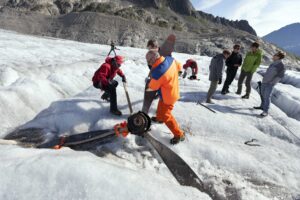
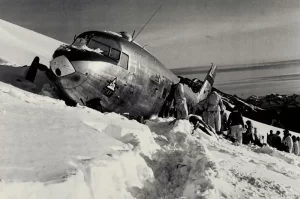 get to them. They were forced to drink snow water and ration chocolate bars to survive, but survive they did. Many times, survival at a crash site, if you survived the initial crash, is all about using common sense and keeping your wits about you. You have to take stock of your supplies and be willing to ration what you have. You can’t let anyone get out of control, because a panic could waste vital supplies. Water is the most vital of the supplies, because while the human body can go weeks without food, it can only live a few days without water. While it would seem that water on a glacier would be plentiful, it may not be so. You would have to chip away at the ice, and then melt it to drink. In addition, you have to get it warm, or you will risk the water causing Hypothermia. This particular group managed to do things right, or at least enough right to survive the six days while they waited for rescue. Once rescued, they went on with their lives feeling very blessed to be alive.
get to them. They were forced to drink snow water and ration chocolate bars to survive, but survive they did. Many times, survival at a crash site, if you survived the initial crash, is all about using common sense and keeping your wits about you. You have to take stock of your supplies and be willing to ration what you have. You can’t let anyone get out of control, because a panic could waste vital supplies. Water is the most vital of the supplies, because while the human body can go weeks without food, it can only live a few days without water. While it would seem that water on a glacier would be plentiful, it may not be so. You would have to chip away at the ice, and then melt it to drink. In addition, you have to get it warm, or you will risk the water causing Hypothermia. This particular group managed to do things right, or at least enough right to survive the six days while they waited for rescue. Once rescued, they went on with their lives feeling very blessed to be alive.
The snow, and later, ice covered the plane as the years went by, and it was very likely forgotten…until 2012 anyway, when three young people discovered the plane’s propeller on the glacier. They continued to observe the emerging plane and as the glacier continued to melt, the scene unfolded. Today, it reportedly looks like a 
 field covered in plane debris, and many people probably wonder how anyone managed to live through the initial crash…much less everyone. As the glacier melted, the plane slid down the mountainside and was expected to finally emerge at the bottom. In fact, much of the debris field might actually be caused by the melting ice.
field covered in plane debris, and many people probably wonder how anyone managed to live through the initial crash…much less everyone. As the glacier melted, the plane slid down the mountainside and was expected to finally emerge at the bottom. In fact, much of the debris field might actually be caused by the melting ice.

 Sometimes, traditions get out of hand, and have to be called off. Such was the case with the Texas A&M University’s annual bonfire. Bonfires have long been associated with high school and college football games, usually for homecoming or the school’s main rival. The bonfire at Texas A&M was a student-built project, that became more and more elaborate every year. The bonfire being built on November 18, 1999, was probably the most elaborate and tallest bonfire structure ever. The 1999 bonfire was supposed to require more than 7,000 logs and was the labor of up to 70 workers at a time. The students had worked all night, and at approximately 2:42am, with a number of students on top of the structure, which at 59 feet high, was actually 4 feet taller than was authorized, the structure collapsed. According to Jenny Callaway, a student survivor working near the top of the stack, “It just snapped.” They had no warning. There was no audible sound, or if there was, it could not be heard over all the chatter. Dozens of students became caught in the huge log pile. Other students, such a Caleb Hill, were relatively unhurt in their 50-foot fall. At the time of the collapse, approximately 5,000 of the planned 7,000 logs were in place. Emergency medical technicians and trained first responders of the Texas A&M Emergency Care Team (TAMECT) rushed to the scene. A student-run volunteer service, who staffed each stage of construction, also began administering first aid to the victims who were thrown clear. TAMECT also alerted the University Police and University EMS, who dispatched all remaining university medics, and requested mutual aid from surrounding agencies. In addition to the mutual aid received from the College Station and Bryan, Texas EMS, Fire, and Police Departments, the members of Texas Task Force 1, the state’s elite emergency response team, were also dispatched to assist the rescue efforts.
Sometimes, traditions get out of hand, and have to be called off. Such was the case with the Texas A&M University’s annual bonfire. Bonfires have long been associated with high school and college football games, usually for homecoming or the school’s main rival. The bonfire at Texas A&M was a student-built project, that became more and more elaborate every year. The bonfire being built on November 18, 1999, was probably the most elaborate and tallest bonfire structure ever. The 1999 bonfire was supposed to require more than 7,000 logs and was the labor of up to 70 workers at a time. The students had worked all night, and at approximately 2:42am, with a number of students on top of the structure, which at 59 feet high, was actually 4 feet taller than was authorized, the structure collapsed. According to Jenny Callaway, a student survivor working near the top of the stack, “It just snapped.” They had no warning. There was no audible sound, or if there was, it could not be heard over all the chatter. Dozens of students became caught in the huge log pile. Other students, such a Caleb Hill, were relatively unhurt in their 50-foot fall. At the time of the collapse, approximately 5,000 of the planned 7,000 logs were in place. Emergency medical technicians and trained first responders of the Texas A&M Emergency Care Team (TAMECT) rushed to the scene. A student-run volunteer service, who staffed each stage of construction, also began administering first aid to the victims who were thrown clear. TAMECT also alerted the University Police and University EMS, who dispatched all remaining university medics, and requested mutual aid from surrounding agencies. In addition to the mutual aid received from the College Station and Bryan, Texas EMS, Fire, and Police Departments, the members of Texas Task Force 1, the state’s elite emergency response team, were also dispatched to assist the rescue efforts.
As with any disaster, word of the collapse spread among students and the community within minutes. By the time the sun rose, the accident was the subject of news reports around the world, and within hours, 50 news satellite trucks were broadcasting from the Texas A&M campus. Because of the precariousness of the structure, the rescue efforts took over 24 hours to complete. The process was slow, because they didn’t want to risk hurting anyone else, or further injuring the students still trapped inside. Students, including the entire Texas A&M football team and many members of the university’s Corps of Cadets, rushed to the site to assist rescue workers with the manual removal of the logs. To further complicate the rescue efforts, they had to call in the Texas A&M civil engineering department to examine the site and help the workers determine the order in which the logs could be safely removed. Also, at the request of the Texas Forest Service, Steely Lumber Company in Huntsville, Texas, sent log-moving equipment and operators to make removal safer for all concerned. At the time of the accident, there were 58 people, students and former students, working on the stack. Of those 58 people, 12 were killed and 27 were injured. Killed in the initial collapse were ten students and one former student. Another student died in the hospital the next day. The last person pulled out alive was John Comstock, who spent months in the hospital following amputation of his left leg and partial paralysis of his right side. He returned to A&M in 2001 to finish his degree.
In the aftermath of the tragedy, “the university gave the National Forestry Hero Award to an employee of Steely Lumber Company, James Gibson, for rescuing students. By 2000 Texas A&M spent over $80,000 so students and administrators could travel to the funerals of the deceased, including $40,000 so 125 students and staff could attend a funeral in Turlock, California by way of private aircraft; most of the persons on board were students. The total amount of funds spent by the university on all disaster-related expenses by that date was $292,000.” For two years, the university tried to decide on a possible way to reinstate the tradition. A task force was formed, and they proposed a new design. The task force recommended that students be allowed to participate in building the bonfire as long as they were monitored by professional construction experts. That plan wasn’t exactly received with open arms by the students. They felt like it would no longer be a student 
 project. In the end, it didn’t matter, because the cost of a liability policy to cover these events would cost more than $2 million per year. With that in mind, the bonfires were discontinued in 2002. Bowen’s successor Robert Gates upheld this decision. In recent years, some students have held smaller bonfires off campus, but the school is not involved with these. Multiple memorials were held to remember the victims of the disaster.
project. In the end, it didn’t matter, because the cost of a liability policy to cover these events would cost more than $2 million per year. With that in mind, the bonfires were discontinued in 2002. Bowen’s successor Robert Gates upheld this decision. In recent years, some students have held smaller bonfires off campus, but the school is not involved with these. Multiple memorials were held to remember the victims of the disaster.
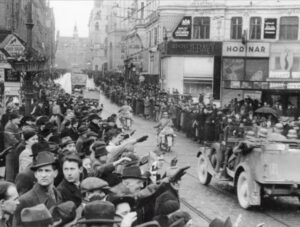 Normally, when you think of something like International Students’ Day, most of us think of a day of things like walkouts, protests, and other days during which students are expected to conform to a collective norm of all these issues, like climate change, anti-war protests, and such. No matter what your stance on that is, this is not why International Students’ Day is commemorated. On November 17, 1939, in Czechoslovakia, students the University of Prague were demonstrating against the German occupation of Czechoslovakia. The Nazi occupation was protested by many groups, and yet, what was a legal protest, was turned into a mass invasion and murder of the student protesters. The event was similar to the Tiananmen Square massacre in which they opened fire on the protesters in China. That one was the Chinese government, while this one was the Nazis. I’s sure the Tiananmen Square massacre was illegal in China, but that was not the case…supposedly anyway, with the Czech protests. Today, the nations have come together in remembering the nine students who were killed, and the others who were sent to concentration camps as a result of their participation in protests over German occupation.
Normally, when you think of something like International Students’ Day, most of us think of a day of things like walkouts, protests, and other days during which students are expected to conform to a collective norm of all these issues, like climate change, anti-war protests, and such. No matter what your stance on that is, this is not why International Students’ Day is commemorated. On November 17, 1939, in Czechoslovakia, students the University of Prague were demonstrating against the German occupation of Czechoslovakia. The Nazi occupation was protested by many groups, and yet, what was a legal protest, was turned into a mass invasion and murder of the student protesters. The event was similar to the Tiananmen Square massacre in which they opened fire on the protesters in China. That one was the Chinese government, while this one was the Nazis. I’s sure the Tiananmen Square massacre was illegal in China, but that was not the case…supposedly anyway, with the Czech protests. Today, the nations have come together in remembering the nine students who were killed, and the others who were sent to concentration camps as a result of their participation in protests over German occupation.
The world was so shocked by the killings and the taking of captives, but not much could be done. Among the dead were Jan Opletal and worker Václav Sedlácek. The Nazis rounded up the students, murdered nine student leaders and sent over 1,200 students to concentration camps, mainly to Sachsenhausen. As a result of the attacks, all Czech universities and colleges were closed. Technically, by this time Czechoslovakia no longer 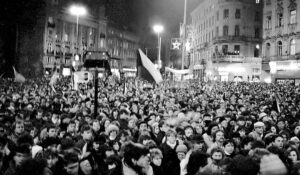 existed, as it had been divided into the Protectorate of Bohemia and Moravia and the Slovak Republic under a fascist puppet government. The Nazi authorities were in the Protectorate of Bohemia and Moravia. Their main target was students of the Medical Faculty of Charles University. That demonstration was held on October 28, and it was to commemorate the anniversary of the independence of the Czechoslovak Republic in 1918. During this demonstration the student Jan Opletal was shot, and later died from his injuries on November 11th. On November 15th, his body was supposed to be transported from Prague to his home in Moravia. The funeral procession attracted thousands of students, who turned the event into an anti-Nazi demonstration. The Nazis would not allow such a demonstration, so the Nazi authorities took drastic measures in response. They closed all Czech higher education institutions, and arrested the more than 1,200 students, all of whom were then sent to concentration camps. They also executed nine students and professors without trial on November 17th. Historians speculate that the Nazis granted permission for the funeral procession already expecting a violent outcome. Their plan was to use that as a pretext for closing down universities and purging anti-fascist dissidents. I would have to agree. In that way, it was easier to place blame on the students and staff, and not the Nazis.
existed, as it had been divided into the Protectorate of Bohemia and Moravia and the Slovak Republic under a fascist puppet government. The Nazi authorities were in the Protectorate of Bohemia and Moravia. Their main target was students of the Medical Faculty of Charles University. That demonstration was held on October 28, and it was to commemorate the anniversary of the independence of the Czechoslovak Republic in 1918. During this demonstration the student Jan Opletal was shot, and later died from his injuries on November 11th. On November 15th, his body was supposed to be transported from Prague to his home in Moravia. The funeral procession attracted thousands of students, who turned the event into an anti-Nazi demonstration. The Nazis would not allow such a demonstration, so the Nazi authorities took drastic measures in response. They closed all Czech higher education institutions, and arrested the more than 1,200 students, all of whom were then sent to concentration camps. They also executed nine students and professors without trial on November 17th. Historians speculate that the Nazis granted permission for the funeral procession already expecting a violent outcome. Their plan was to use that as a pretext for closing down universities and purging anti-fascist dissidents. I would have to agree. In that way, it was easier to place blame on the students and staff, and not the Nazis.
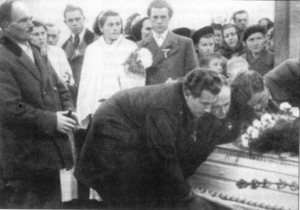 In 2009, on the 70th anniversary of November 17, 1939, OBESSU and ESU promoted a number of initiatives throughout Europe to commemorate the date. An event was held from the 16th to the 18th of November at the University of Brussels, focusing on the history of the students’ movement and its role in promoting active citizenship against authoritarian regimes. The conference gathered around 100 students representing national students and student unions from over 29 European countries, as well as some international delegations. Today, International Students’ Day is a day of remembrance to honor these brave students, who gave their lives and their freedom for a cause the believed in. Some countries, like Czechoslovakia have named it a national holiday.
In 2009, on the 70th anniversary of November 17, 1939, OBESSU and ESU promoted a number of initiatives throughout Europe to commemorate the date. An event was held from the 16th to the 18th of November at the University of Brussels, focusing on the history of the students’ movement and its role in promoting active citizenship against authoritarian regimes. The conference gathered around 100 students representing national students and student unions from over 29 European countries, as well as some international delegations. Today, International Students’ Day is a day of remembrance to honor these brave students, who gave their lives and their freedom for a cause the believed in. Some countries, like Czechoslovakia have named it a national holiday.

